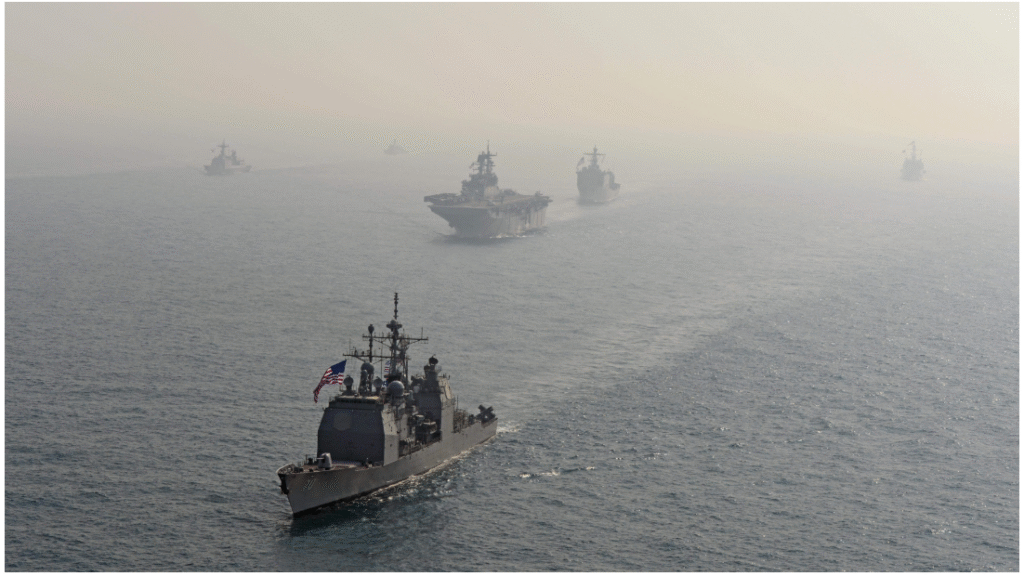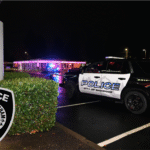The United States is launching a major new military and surveillance campaign in the Western Hemisphere, deploying an unprecedented mix of robotic air and sea vessels to counter Latin American drug-trafficking cartels.
Called Operation Southern Spear, the initiative was formally announced Thursday night by Defense Secretary Pete Hegseth, who said through his X account that the mission follows a direct order from President Donald Trump.
“President Trump ordered action — and the Department of War is delivering,” Hegseth said. “Operation SOUTHERN SPEAR defends our Homeland, removes narco-terrorists from our Hemisphere, and secures our Homeland from the drugs that are killing our people. The Western Hemisphere is America’s neighborhood — and we will protect it.”
The campaign will be led by Joint Task Force Southern Spear in coordination with U.S. Southern Command and U.S. Naval Forces Southern Command/U.S. 4th Fleet, headquartered at Naval Station Mayport in Florida. Operations are expected to begin later this month.
In a statement, 4th Fleet officials described Southern Spear as a significant step in the Navy’s evolving Hybrid Fleet Campaign, which integrates robotic and autonomous systems with traditional naval forces. “Southern Spear will operationalize a heterogeneous mix of Robotic and Autonomous Systems to support the detection and monitoring of illicit trafficking while learning lessons for other theaters,” said Cmdr. Foster Edwards, 4th Fleet’s Hybrid Fleet Director. “This will help develop critical techniques and procedures for integrating RAS into the maritime environment.” According to the Navy, the mission will deploy:
- Long-dwell robotic surface vessels designed for persistent ocean patrols.
- Small robotic interceptor boats capable of high-speed maneuvering.
- Vertical take-off and landing robotic aircraft for aerial surveillance.
The systems will operate alongside U.S. Coast Guard cutters at sea and feed intelligence into operations centers at 4th Fleet and the Joint Interagency Task Force South, which coordinates regional counter-narcotics missions.
Officials say the deployment will help determine the most effective combinations of unmanned vehicles and manned forces for coordinated operations — data that will shape Navy doctrine under Project 33, the service’s initiative to accelerate robotic integration into fleet missions.
Using robotic assets is expected to increase U.S. presence in maritime chokepoints and high-traffic zones used by drug-smuggling networks. Navy leaders say the systems will also strengthen regional security cooperation by giving partner nations access to shared intelligence and detection tools.
“Operation Southern Spear is the next step in our Hybrid Fleet Campaign,” said Rear Adm. Carlos Sardiello, Commander of U.S. Naval Forces Southern Command and U.S. 4th Fleet. “Hybrid Fleet operations increase our collaboration with partners in the region while advancing the Navy’s tactics, techniques, procedures, and processes.” The announcement comes amid a growing military buildup in the Southern Caribbean of a size not seen in the region for decades. On Tuesday, the world’s largest and most technologically advanced aircraft carrier, the USS Gerald R. Ford, entered the U.S. Southern Command area of responsibility, further expanding a deployment that has alarmed foreign governments and is described by analysts as a potential prelude to strikes on Venezuelan territory, whose leadership is accused by U.S. officials of running the Los Soles drug cartel.
The Center for Strategic and International Studies estimates that the U.S. military now has more than a dozen vessels in the region, including eight warships, three amphibious ships and a nuclear-powered submarine.
While the operation is officially described as a counter-narcotics mission, the deployment coincides with what officials call “intensifying deliberations” inside the White House over potential direct action against the regime of Venezuelan leader Nicolás Maduro.
Both the Miami Herald and Wall Street Journal have reported that the administration has identified Venezuelan military installations allegedly linked to drug-trafficking networks as potential bombing targets.
The New York Times has reported that Trump is weighing broader intervention options, including seizing oil fields, targeting Maduro’s elite guard units and even forcibly removing the Venezuelan leader from power.
The administration has not sought a formal declaration of war from Congress. Instead, advisers are exploring alternative legal justifications for regime-change operations under existing anti-drug authorities, arguing that Maduro and his inner circle operate as key nodes in transnational narcotics networks.
By ANTONIO MARIA DELGADO/Miami Herald
McClatchy Washington Bureau reporter Emily Goodin contributed to this story.



